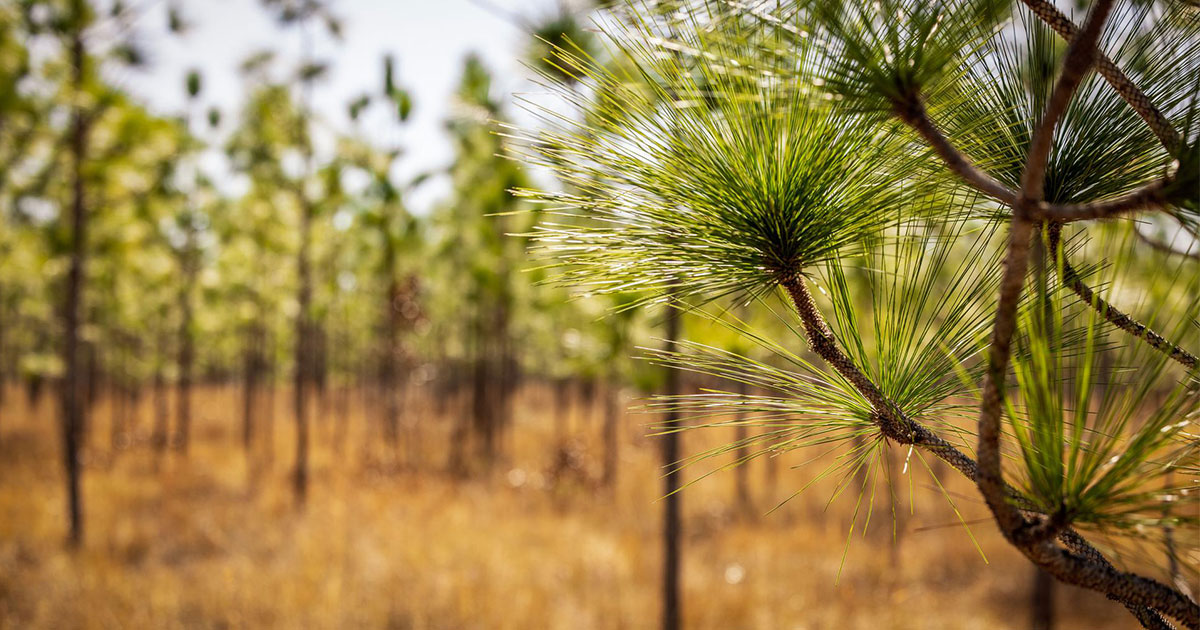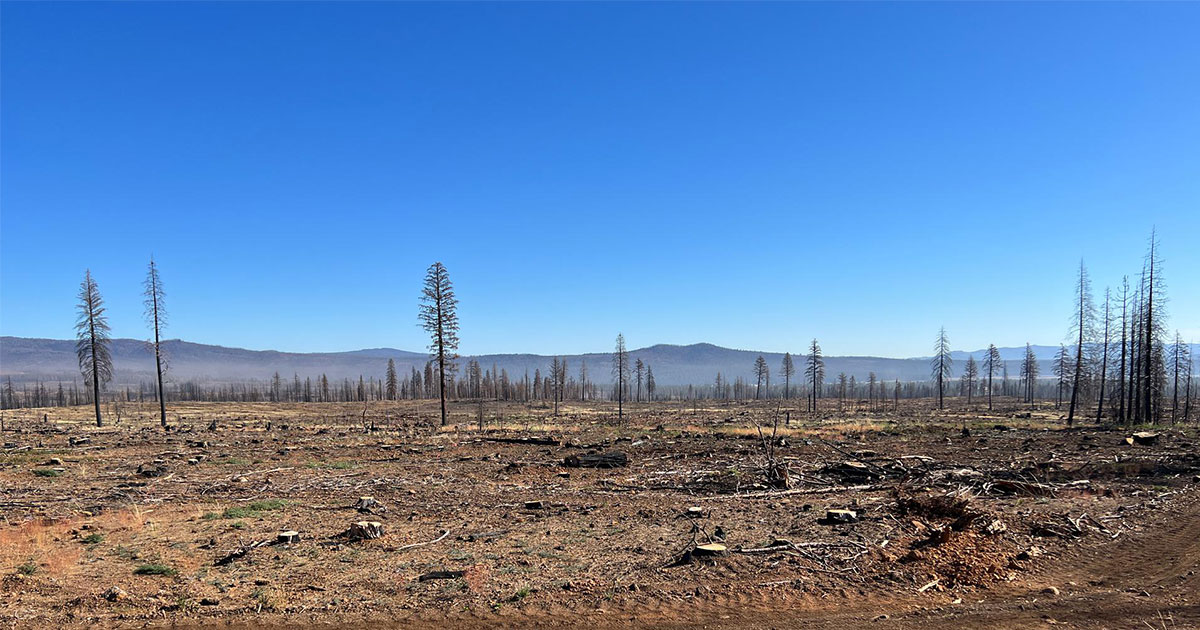Environmental stewardship: Medline funds the planting of 20,000 trees

By Medline Newsroom Staff | June 15, 2023
A Medline donation is supporting the planting of 20,000 trees to help restore vital ecosystems damaged by deforestation and fire in Georgia and Northern California. Over the next 40 years, the new trees will sequester (capture and store) more than 7,100 metric tons of carbon dioxide—the most commonly produced greenhouse gas, a primary contributor to climate change. The amount of sequestered carbon dioxide is equivalent to 17.75 million car miles, one-fifth the distance between the earth and the sun.
“At Medline, we know that our future depends on the health of our environment,” said Francesca Olivier, Medline vice president of global environmental, social and governance. “We’re actively exploring strategies to lower our environmental footprint, helping our customers to do the same, and supporting organizations that promote sustainability. We’re pleased to partner with the Arbor Day Foundation on these impactful projects.”
“Thanks to Medline, this work is making meaningful strides towards restoring these forests back to their original landscapes.”

Katie Loos
President, Arbor Day Foundation
“This support allows us to elevate the impact needed to help restore forestland of greatest need,” said Katie Loos, president of the Arbor Day Foundation. “Our planting efforts in Georgia and California are focused on improving degraded ecosystems that are in critical need of the long-term benefits trees provide. Thanks to Medline, this work is making meaningful strides towards restoring these forests back to their original landscapes.”
Replacing trees lost during the Dixie Fire
In Northern California, Medline is planting 9,000 new trees to assist ongoing recovery efforts following the devastation caused by the 2021 Dixie Fire. The second-largest wildfire in the state’s history, the Dixie Fire raged from July through October 2021. More than 963,000 acres of evergreens were burned during the fire, home to hundreds of wildlife species vital to the health of the landscape and biology of nearby Lake Almanor.

More than 963,000 acres of evergreens were burned during the 2021 Dixie Fire.
Photo courtesy of Aloma Land & Forest, LLC
A diverse blend of native species, including ponderosa pine, Douglas fir, Jeffrey pine, white fir and red fir, will be planted to help improve the area’s biodiversity, allowing the forest ecosystem to become more resilient to natural disasters and climate change. The newly planted trees also will help reestablish habitats disrupted by the fire including the homes and habitats of cougars, chipmunks, black bears and long-toed salamanders. As the trees take root and grow into mature stands, roots systems will prevent erosion while improving the water quality in Lake Almanor.
Reversing deforestation in Georgia
In Georgia, Medline is also supporting the addition of 11,000 longleaf pine trees across 35 tracks of private land. Longleaf pine was once the dominant tree species in the South, covering more than 90 million acres from Virginia to Texas. More than 400 years ago, early settlers gradually began clearing away the forests for agriculture and lumber. Today, the longleaf pine covers less than 3% of its original range.
As the new trees grow, they will reduce forest fragmentation and provide a home to endangered wildlife, including the red-cockaded woodpecker, indigo snake and gopher tortoise. Additionally, longleaf pines are resistant to weather extremes, disease and erosion due to their ability to grow and thrive in sandy and mountainous areas.
Each year, Medline provides charitable contributions to organizations aiding the environment and working to address social determinants of health.
Learn more about the many ways that Medline is working to create positive social and environmental change, here and around the world.
Medline Newsroom Staff
Medline Newsroom Staff
Medline's newsroom staff researches and reports on the latest news and trends in healthcare.

